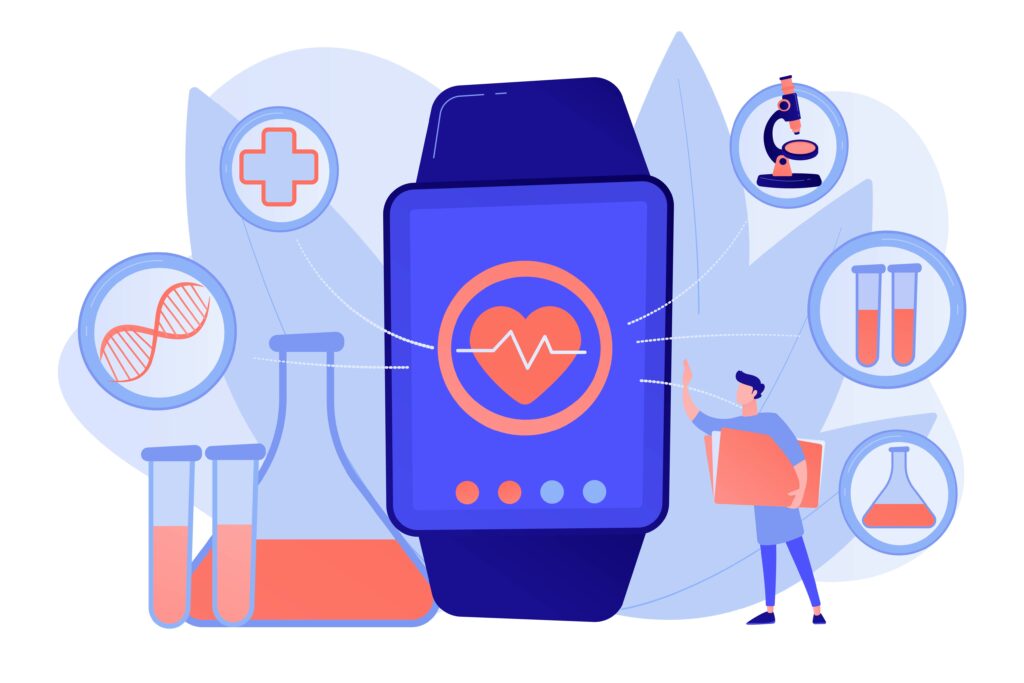Why did we want to come up with this blog?
There’s much to it, but two motives stand out. One, we needed to clear the air on therapy and wellness—many of us have been given to believe it’s the same, but it’s not—and the other, to extend clarity on how these two approaches stand apart from each other.
But before we get into the brass tax, the objective of discussing this topic is for the benefit of understanding the management of several chronic conditions including diabetes, hypertension, obesity, chronic kidney disease, PCOS, asthma and arthritis.
Now, let’s jump right in!
What does the term “Digital Therapeutics” (DTx) mean?
For starters, it may sound like jargon for any of several health apps that you can download from app stores and use on your phone or tablet. But, trust us, there’s much more to it!
Now, as the name implies, DTx is a domain of healthcare that:
- Adopts digital/online modes to interact, track progress real-time, receive instant feedback/alerts, and provide precise, personalized interventions promptly
- Aims to either predict, prevent, delay, or manage the chronic condition depending on its stage
- Delivers therapy that is sophisticated—clinically validated, evidence-based, and data-driven
- Deploys a web and/or mobile application to virtually and actively engage with the patient, gather clinical evidence, and improvise treatment for successful outcomes every time
What is “Wellness”?
Well, the meaning of the term remains elusive, though widely used, and its definitions, if provided, widely vary. Understanding and action in wellness practice is limited, and access to research findings are fragmented, as a universally acceptable definition for the terms does not exist.
However, the term is used in discussions about mental, physical and emotional health, as well as in broader more esoteric aspects of life satisfaction such as happiness.
According to the National Wellness Institute, “wellness” is considered, “an active process through which people become aware of, and make choices toward, a more successful existence”.
Consequently, “wellness” is variously considered:
- A conscious, self-directed and evolving process of achieving full potential
- Multi-dimensional and holistic, encompassing:
- Lifestyle
- Mental well-being
- Spiritual well-being
- The environment
- Positive and affirming
When compared to Digital Therapeutics, wellness isn’t that well-defined and exclusive. Traditional wellness apps generally don’t do anything more than track activities such as yoga, meditation, breathing exercises, sleep or exercise.
The key differences:
Category | Digital Therapeutics | Wellness Tracking |
Focus Area | Specific Chronic Condition | Various conditions and complications |
Regulatory Approvals | Clinical programs need to be approved by HIPAA, ISO, CDSCO | No regulatory approvals necessary. Can be downloaded directly from the app store. |
Therapeutic Outcomes | Clinically validated and evidence-based | Baseless claims about clinical benefits |
Business Model | B2B2C – Business to Business to Consumer | B2C – Business to Consumer |
Key Performance Indicator | 1. Adherence / Compliance 2. Progressive improvement & stability of vitals 3. Consistency of treatment | 1. Number of Users 2. Usage 3. Direct turnover |
Reimbursement Claims | Can be reimbursed depending on DT compliance | Subscription-only model for consumers |

